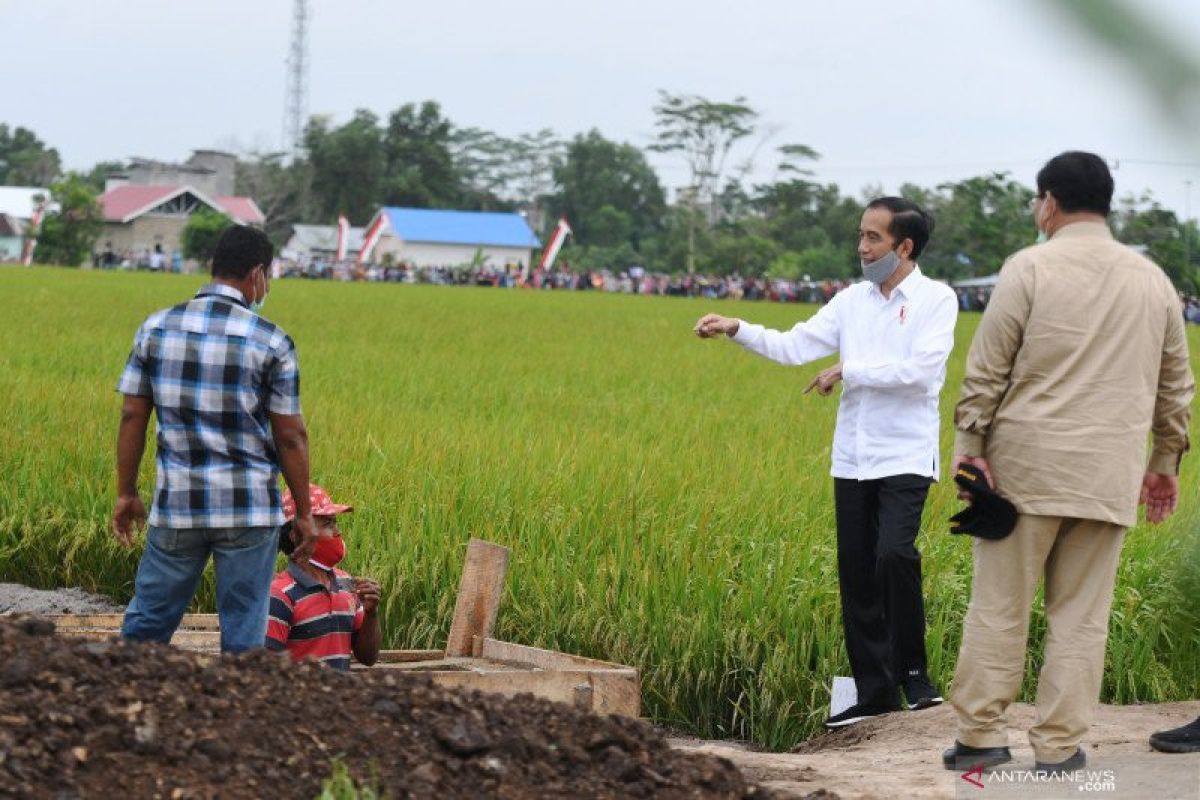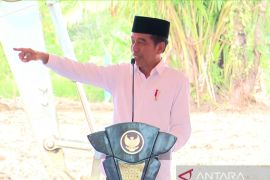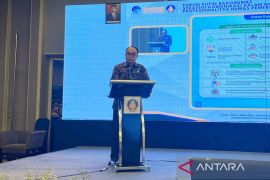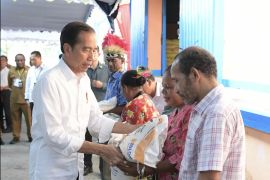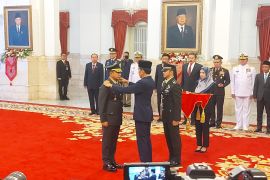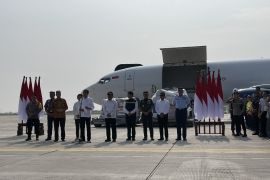The problems that require proper and immediate resolutions are linked to the ownership of agricultural land within the vast areas used for developing the food estate, he stated during a videoconference held at the Merdeka Palace here to discuss issues encountered in food estate development.
To this end, President Jokowi spoke of having requested the agrarian and spatial planning minister/head of the National Land Agency (BPN) to tackle the problems since the food estate is being developed on a vast area of farmland.
President Jokowi reiterated that ensuring food security was part of the government's prioritized national programs as a precautionary measure against the impacts of the ongoing novel coronavirus disease (COVID-19) pandemic on food stocks and food supplies.
On Sept 12, Agriculture Minister Syahrul Yasin Limpo unveiled the ministry's plan on developing horticultural crops in Humbang Hasundutan Village, North Sumatra Province, under the government's Food Estate Program to be commenced this year.
The first phase of this Food Estate Program will be commenced on one thousand hectares of farmland, Limpo noted in a recent statement made in connection with his working visit to Ria-Ria Village in Humbang Hasundutan (Humbahas).
"We have planned to develop the food estate program on 30 thousand hectares of farmland in Humbahas District. As a trial, we are cultivating a thousand hectares of farmland this year," he remarked.
Situated 1,400 meters above sea level, Humbahas has a climate conducive for cultivating potatoes and onions.
The ministry is chiefly prioritizing the development of horticultural crops to meet the demand of raw materials for food industries, including potatoes and onions, he noted.
The Food and Agriculture Organization (FAO) of the United Nations has repeatedly warned that the ongoing COVID-19 pandemic may trigger a shortage of food stockpiles.
In response to this warning, Indonesia is sentient of the significance of boosting the nation's food security amid the ongoing global COVID-19 pandemic and beyond.
To this end, the government has formulated a program to boost production capacity and local food diversification as well as the development of a food reserves system, modern agriculture, and exports.
With food security being the prime focus, the government has been working on its food estate program by also developing 165 thousand hectares of land into farmland in Pulang Pisau District, Central Kalimantan Province.
Minister Limpo affirmed that the food estate will be developed by applying modern technology in farming.
According to ANTARA's observation, despite a steady rise in Indonesia's population, the country had yet to achieve food security, which by definition is related to "food availability, food access, and food utilization" (USAID 1995 in FAO).
Rather than feed its people the rice that is produced by its own farmers, the central government has frequently imported rice over the past years to meet the public's requirements.
This condition has, indeed, posed a grave challenge and does not bode well with Indonesia's status as one of the world's top agricultural countries.
Indonesia should not make it a perpetual practice to import rice from countries, including Thailand and Vietnam, since it will potentially disadvantage local farmers and threaten its national security in the long term. Related news: Ensure a smooth food supply chain nationwide: Jokowi
Related news: Rp1 trillion for Papua food estates` basic infrastructure
EDITED BY INE
Translator: Rangga PAJ, Rahmad Nasution
Editor: Suharto
Copyright © ANTARA 2020
